Enab Baladi’s Investigation Team
Mourad Abdul Jalil – Dia Odeh – Ahmad Jamal
The empty streets and squares and the long queues of cars waiting at gas stations, are daily scenes reflecting the reality and struggle of citizens in the regime-held areas, in light of a severe fuel crisis, which the Ministry of Oil in the regime government faces by merely thanking citizens “for their sense of patriotism and patience” and describing it as a temporary circumstance”.
Caught between the fear of the worsening crisis and its future repercussions on the industrial sector and the prices of basic materials and food, the citizen keeps hearing the repeated promises of government officials, who camouflage the bitter reality and conceal it behind the slogans of resistance and patriotism. It is indeed, the reality of the worsening crisis and the lack of signs to resolve it once and for all.
Although the crisis has an explicit economic dimension that directly affects citizens, there are still implicit political motives behind it. The United States affirms that the goal of the sanctions is to disrupt the ability of the regime’s president, Bashar al-Assad, to fund his violent campaign against the people and force him to step down.
The allies of the regime, Russia and Iran, are both trying to capitalize on the economic hardship they are going through in order to make concessions that would enable them to obtain sovereign investment projects for decades, as has recently been the case of Russia that hired the strategic port of Tartous for 49 years.
In this investigation, Enab Baladi probes the most important indicators behind the hydrocarbon crisis in Syria, the ways in which it is secured by the regime under economic sanctions, in addition to the political conflict between the international parties and its relevance to the crisis.
Real crisis… America tightens sanctions and citizens are the most affected
In light of the regime’s previous experiences in igniting crises affecting citizens for political purposes, there have been different opinions about the causes of the current hydrocarbon crisis as some have considered it prelude to phase out fuel subsidy and sell it at free prices.
However, economic analysts interviewed by Enab Baladi have agreed that the fuels crisis is a fact and it is confirmed by several indicators, most notably the regime’s loss of control over oil wells over the past years, the lack of the oil reservoir represented by the East Euphrates region, which is currently controlled by the Syrian Democratic Forces (SDF) and the latter’s threat not to supply the regime with oil through trucks.
This has led to the loss of the volume of production that used to be 385 thousand barrels per day before 2011. As for now, the volume of oil production from areas, over which the regime has regained control in the south of the Euphrates River, reaches only 24 thousand barrels per day, as reported the pro-regime newspaper al-Watan on April 17.
The second indicator is the lack of Iranian supplies and the suspension of a one-billion dollar credit line signed by the regime with Iran in January 2017, of which 500 million dollars had been allocated to support the import of oil derivatives, through which the regime had imported 90 percent of its oil needs. This credit line had then been suspended last year because of the US sanctions on Tehran, and its tightening on the sea and land routes, as confirmed by Economic Analyst Munaf Quman to Enab Baladi.
Director General of the Syrian Company for the Storage and Distribution of Petroleum Products (Sadcop) of the Ministry of Oil in the government of the Syrian regime, Mustapha Hasawiya, said in an interview with Syrian News Channel (al-Ikhbariyah Syria), aired on Saturday, April 13 April, that the Iranian credit line signed with the government to supply crude oil from Iran to Syria had been suspended since October 20, 2019, adding that Iran used to supply Syria with millions of barrels of oil per month, and the quantity reached three million barrels in some months. However, since the last six months, Syria had not received any tanker from Tehran.

Taxi drivers pushing their cars empty of gasoline to a fuel station in the Syrian capital DAMASCUS, April 16 (Reuters)The country’s government has faced a barrage of international sanctions since the conflict started in 2011, including measures impacting the import of petroleum-related products. (Photo by LOUAI BESHARA / AFP)
The US tightens sanctions
USA’s tightening of sanctions has not only been limited to Tehran, but it has also included warnings from Washington against those who contribute to supplying the Syrian regime with fuel, be they individuals or transporting companies. The Office of Foreign Assets Control (OFAC) of the US Department of the Treasury warned in a statement issued by the Office of Public Affairs of the US Department of the Treasury, on March 26, which reached Enab Baladi, the Maritime Petroleum Shipping Community from the risks associated with transporting oil shipments to Syria.
The statement, which is an update to a previous warning issued on 20 November 2018, added the names of dozens of new tankers participating in illegal shipments of oil, including 16 tankers that ship oil to Syria.
The US warning came after the Syrian regime and its allies circumvented the sanctions through several ways, as admitted by the Ministry of Oil in its statements to al-Watan newspaper on April 17. The ministry confirmed that after the suspension of the Iranian credit line, it started looking for solutions to circumvent the economic sanctions, by signing land, sea, and air supply contracts through neighboring countries.
Four methods the regime used to circumvent sanctions
The US Department of the Treasury has identified four ways with which the regime has circumvented US sanctions on the importation of fuels:
– The falsification of shipping and ships documents. The companies that supply fuel to the regime resort to falsifying bills of shipment, certificates of origin, invoices and lists of charging, and proof of insurance, which usually accompany the shipment transaction, with the purpose of covering the destination of oil shipments.
– Ship to ship transfer (STS), a means of transporting goods between ships while in the sea rather than in the port, which could cover the origin or destination of the goods.
– Ships transporting fuel to the regime intentionally disable the Automatic Identification System (AIS), which is an automatic tracking system for ships that identifies their identities and location.
– Changing the ships’ owners and names in an attempt to cause confusion on their illegal activities. Therefore, it is necessary to search for any ship not only by name, but also by their IMO number.
Washington also stressed the seriousness of the sanctions on the parties and countries that allow the passage of oil tankers to Syria, such as Egypt through the Suez Canal, Iraq, which allows the passage of their tankers by road, or the SDF, which allows the passage of a number of trucks, as stated by the President of the Syrian Economic Task Force, Osama Kadi, to Enab Baladi.
Syrian Prime Minister Imad Khamis said on April 8 that the Egyptian Suez Canal has been preventing, for the last six months, the passage of oil-loaded ships to Syria. He added that “all attempts and communications have failed to convince the Egyptian side to allow the passage of one tanker.”
According to the Lebanese newspaper al-Akhbar, Advisor to the Ministry of Economy of Iran, Maytham Sadeghi stressed, on April 11, that “Egypt has been preventing, for a long time, the passage of oil tankers, in compliance with US sanctions.”
A catastrophic scenario
“We are facing a catastrophic scenario,” with these words, economic analyst Munaf Quman described the effects of the crisis if it continues and in case the regime adheres to its choices and practices, because of the possibility of their impacts on different sectors, most notably the agricultural sector.
Quman added in an interview with Enab Baladi: “If the US prevents the SDF from supplying the regime with petroleum tracks, and if any land or sea shipment of oil destined for Syria from Iran is targeted, the regime will only be left with the fields and wells under its control, which would be enough to cover up only a small portion of its needs. As a result, the country will face a significant rise in food prices and a devaluation of the Syrian lira.”
The Syrian market needs a daily minimum of 4.5 million liters of gasoline, six million liters of diesel oil, seven thousand tons of fuel and 1,200 tons of gas, the President of the Syrian Economic Task Force, Osama Kadi, told Enab Baladi.
According to Kadi, this means that the government of the regime needs 200 million US dollars a month, while it owns a reserve of only about 700 million dollars, which is enough for about three months. In addition, the current oil production is about 20 thousand barrels, while its needs 136 thousand barrels per day, bringing the deficit in the diesel to 90 days, gasoline to 108 days, and gas to 45 days.
Kadi pointed out that the recent fuel crisis has worsened the living conditions of the Syrian citizen, who has already been suffering from very low living conditions, high unemployment rates, poor services, rampant inflation, low exchange rate of the Syrian lira, doubled transport costs (collective and normal taxis) to compensate for the loss of time, only to get 20 liters that the Ministry of Oil has set up for each car.
The government of the regime has recently started selling the price of one liter of gasoline at free price through mobile containers in the capital Damascus. On Tuesday, April 16, Damascus Governorate set up a mobile station to secure octane 95 gasoline in Mezzeh area at 600 Syrian pounds per liter.
This is the first time that the ministry sells gasoline at the free price, though it was a government-subsidized material, and the price of one liter did not overcome 225 Syrian liras.
Ways the regime resorts to in order to end the crisis
Amid strict sanctions and the prevention of any oil tanker from reaching Syria, the regime has resorted to the signing of land and sea supply contracts through neighboring countries with a number of oil suppliers. However, these contracts have been hindered, either for logistical reasons or because of the technical side that obstructs their arrival, al-Watan newspaper reported on April 17. This means that the regime is forced to look for other ways to secure oil derivatives.
The President of the Syrian Economic Task Force, Economic Expert Osama Kadi, believes that the regime will resort to Russia to send its ships across the Black Sea and then the Bosporus Strait to enter its tankers through Turkey. The regime will also resort to Iran’s mediation with Turkey to bring oil through its territories.
This means the passing of the oil shipments from Turkey to the regime’s areas through the northern countryside of Aleppo controlled by the Turkish-backed Syrian opposition groups, which opened in March Abu al-Zindin crossing in the western part of al-Bab city, leading to the regime-controlled village of al-Shamawiya.
Fuel shipments had been transferred from the SDF-controlled areas in northeastern Syria to the regime-controlled areas through Abu al-Zindin crossing before the National Army, active in the region, issued a decision to ban the fuel exportation through the crossing, “based on public interest requirements,” according to a statement issued by the National Army on Wednesday, April 17.
Kadi also believes that the regime will resort to the SDF to pass fuel tanks (via intermediaries such as al- Qatergi family), which was confirmed by the Oil Ministry in the regime’s government in its statements to al-Watan newspaper, saying it is seeking to import oil from the northeastern region.
If this is accomplished, it will allow the SDF to impose their political conditions in the negotiations with the regime after lengthy discussions between the two sides, during the previous year, which did not lead to any agreement.
However, Kadi believes that the SDF are just an American tool in Syria. They cannot violate US orders, and any negotiation process they conduct with the regime will be closely monitored by the Americans. This is a test of the seriousness of economic sanctions to push for a political solution, as Kadi put it. He pointed out that the fuel artery from eastern regions that may ease the crisis is a card with which the Americans pressure the regime to accept the political solution.
Kadi added that despite the prevention of the SDF from shipping fuel to the regime-controlled areas, this does not preclude allowing the passage of 100 fuel tanks from time to time as a gesture of goodwill, to push for a political solution, as he put it.
Nevertheless, all these solutions may temporarily solve the crisis through one of the parties. They will however remain “fake” solutions, according to Kadi, and they will soon disappear. Economic crises will thus return, and from which those who live in Syria will suffer, “unless the regime and its allies become convinced about the need to start a real political solution.”
https://s3-eu-west-1.amazonaws.com/enabbaladi/arabic/wp-content/uploads/2019/04/28.jpg
A seller in Damascus showing Syrian currency bills – 2012, (Reuters)
“Isolation strategy” toward political concessions
In early 2019, military operations in Syria have been quelled on the ground, and talks have been directed towards a political solution, which is still without any clear signs to date. Nevertheless, the acting countries in the Syrian matter have started directing their movements towards the political arena, in an attempt to resolve outstanding issues with the involvement of the Syrian regime and opposition in the political process.
The Syrian regime seems to be dissatisfied with this. It has conveyed several messages through its statements in which it stressed its legitimacy to control the rest of Syrian territories, and its rejection of any political solution in which the Syrian opposition will be an active part.
Not only that, the regime has also used several cards, most notably resorting to its Iranian ally, which is the biggest obstacle to any political movement in Syria now, as confirmed by the positions of countries, including the USA on the one hand, and Russia on the other, which are looking for a political solution in Syria that would ensure the imposition of their economic influence, to recover the cost they have paid since 2015.
According to what the current reality imposes, more clearly since the beginning of the current year (2019), and with the Syrian regime’s intransigence to make any concessions, the acting countries, the USA on top of which, have had to use methods of pressure that would break the situation the regime has imposed. These methods are represented in the tightening of economic sanctions and the total siege on the regime, which resulted in several crises topped by the fuel crisis, with the closure of all the outlets through which the fuel could pass.
Economic sanctions are represented in the imposition of a set of restrictions on international trade with the target country (Syria in this situation), with the aim of forcing it to change its policies or make concessions in some field.
Over the years, economic sanctions have become one of the foreign policy instruments of powerful countries that use them when needed, as an alternative to military operations, or adopt them at a certain stage.
No bullets involved
When talking about the pressures imposed on the Syrian regime to force it to make political concessions, it is necessary to talk about the general political situation that Syria is currently witnessing, which revolves around two main paths. The first is the Constitutional Committee, which is tasked to draft the new constitution, and which was announced during the Syrian National Dialogue Congress in Sochi, Russia, in early 2018.
The Constitutional Committee has not developed in any way so far, except for the selection of personalities belonging to the opposition and the regime. Thus, a dispute over the list of nominated members from civil society has been intensifying, as the regime officials have rejected the participation of six activists who have been selected by the UN.
The US wants to run the political solution in Syria through the second track, i.e. that of Geneva, under the auspices of the UN in accordance with the Security Council resolution 2254, which the Syrian regime rejected, refused to recognize, and tried to block during the nine rounds of talks held during recent years, the last of which was organized in January, 2018.
In September, 2018, James Jeffrey, US Special Representative for Syria Engagement, announced that the US planned to adopt a “strategy of isolation” with its allies, including severe sanctions, if the head of the Syrian regime blocked the political process to end the seven-year war.
Jeffrey stated that Washington would work with countries in Europe, Asia, and the Middle East to impose tough international sanctions if al-Assad’s regime failed to cooperate on redrafting the constitution in preparation for the elections.
He added: “If the Syrian regime does that, we think we can then impose strict sanctions on it in the same way as we did with Iran before 2015”, in reference to the sanctions imposed on Tehran over its nuclear program.
Jeffrey continued: “Even if the UN Security Council decided not to impose such sanctions, we will do it in cooperation with the European Union or our Asian allies, then we will dedicate the time to make life harder as much as we can for this crumbing regime, and compel the Russians and Iranians, who created this chaos in the first place, to run away from Syria”.
Jeffrey’s remarks give a clear picture of the current condition of the Syrian regime, after being suffocated by economic sanctions since the beginning of 2019. Thus, the political concessions made by al-Assad’s regime, which have not been implemented yet, laid the foundations of the “strategic isolation” plan. Such a plan has resulted in the aggravation of the oil crisis, amid expectations of other crises in the future.
The US policy of imposing sanctions on the regime was not limited to the economy, but rather extended to involve other types of “smart sanctions”.
The US has placed Syrian political, military and economic figures on its blacklist, including Mazen al-Tarazi, who was included in the sanctions list in 2015 and got the assets of his properties inside the US frozen, as well as George Haswani, who had been accused of making deals with ISIS in 2015, aiming at selling oil to the terrorist organization when he was in charge of the oil fields in Deir ez-Zor. Additionally, Al- Qatergi Company joined the blacklist for playing the role of a mediator between the regime and ISIS by facilitating the transfer of oil shipments.
Quman told Enab Baladi that the economic sanctions imposed on the Syrian regime, which led to the oil crisis, are aimed to force al-Assad to negotiate over international resolutions on the political transition, on the one hand, and to distance Iran from Syria, on the other.
He added: “By subjugating al-Assad to international isolation, denying the regime legitimacy, and making its allies (either personalities, entities, or states) pay the price for holding any kind of ties with the Syrian authorities,; the US is sending a powerful message, which implies that there will be no reconstruction and no way back to the pre- 2011 condition, through banning oil transactions with Syria”.
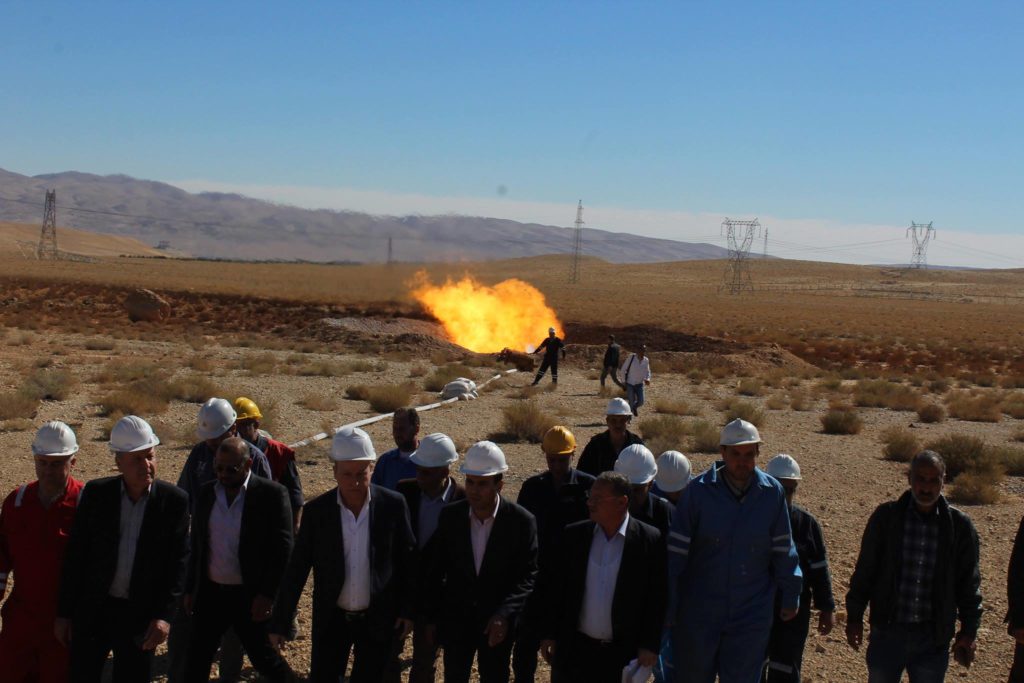
Syrian Minister of Petroleum and Mineral Resources, Ali Ghanem, accompanied by Governor of Homs, Talal al-Barazi, during a visit to an oil field in the eastern countryside of Homs, November, 2018 (Ministry of Petroleum and Mineral Resources)
Breaking ties with Iran
In this context, it seems that the US is serious this time about tightening the boycott against al-Assad and Iran and besieging the regime by land and sea as well as inside and outside Syria; not to overthrow it, but rather to push the Syrian authorities to engage in a political solution, especially in case of the ratification of the Caesar Syria Civilian Protection Act, according to Osama Kadi, head of Syrian Economic Task Force (SETF).
Kadi told Enab Baladi that suspending the ban was overtly linked to the regime’s commitment to the political solution in the Caesar Syria Civilian Protection Act. Thus, it turned out that neither the regime nor Iran can find a way around the political solution, as the pressure will intensify even more until al-Assad finds no other way but to abandon his Iranian ally, which is a very difficult decision to make.
The economic expert did not rule out the possibility that the suffocating blockade imposed on Iran, then on Syria afterward, will continue in the future, followed by a large-scale American-Israeli military action against Iran and its ally in Lebanon, with Russia’s consent, as part of a Russian-American deal in Syria.
In Kadi’s viewpoint, such a scenario is consistent with current Russian government’s current mood, so that it will get rid of Iran through eliminating al-Assad as the head of the regime, which will be diplomatically dissolved through the implementation of the political solution and, thus, end the highly complex Syrian crisis. On the other hand, Russia will be able to maintain its relation with Israel, Turkey, Egypt, and the Gulf States as much as possible, and guarantee that the Russian military bases continue to operate in Syria as a protector of the political solution.
Where is Russia?
Although the US sanctions and the siege imposed on the Syrian regime are the main cause of Syria’s oil crisis, Russia, the regime’s main ally, appears to be making no effort to save al-Assad.
Quman indicated that what political pressure cannot achieve, can be attained through economic intimidation. On the one hand, Russia has the upper hand in saving the regime from collapsing; and on the other, due to the recurrent disagreements with the Iranian side, the Russian government is not bothered at all by the sanctions imposed on Iran or about a possible Israeli military operation in Syria against Iranian targets. Nonetheless, Russia would not mind rearranging the cards inside Syria at the militarily level away from Tehran’s reach.
He explained that after Moscow’s military intervention in Syria, the Russian side wants a political transition mechanism in Syria that will enable it to reap the fruits of its intervention, i.e. have its share in the reconstruction process, energy, etc. Hence, Quman asserted that the Russians benefited from the sanctions imposed on Iran that can play a role in pushing the Syrian regime to consolidate the political process.
Despite the crisis, Bashar al-Assad visited Tehran after imposing sanctions on Iran. According to Quman, “the Russians are holding a project in Syria and will implement their plan there with or without the Syrian regime”.
In the absence of any official statement by Russia on the crisis of oil in Syria, Sputnik quoted Anton Shabanov, an independent Russian economist, on 18 April, 2019, as saying that Russia is unable to supply Syria with oil due to technical and commercial difficulties; i.e. there is no infrastructure (pipelines or land transport) to enable the transfer of oil, while shipping will double the cost of fuel about 20 times.
Shabanov conveyed that “there are no oil pipelines in Syria. Besides, war has damaged the entire infrastructure there. As such, air transport is very expensive, and shipping by sea is also costly… In this case, oil will be as precious as gold”.
He continued: “Yes, Russia can supply Syria with oil and petroleum products. However, such a scenario will lead to increasing fuel cost by 20 or 30 times more than the average price in Syria … So, who will buy it? Who will accept to sell it and lose that much? Accordingly, trading the Russian oil in Syria will not be possible under these conditions”.
According to Kadi, this suffocating siege is aimed to embarrass and force the Syrian regime to abandon a weak ally like Tehran.
Kadi believed that the blockade of oil is done with Russia’s consent, so as to deliver a clear message to Iran, that Russia is the only strong ally who can rule Syria. On the other hand, the oil ban is also aimed at embarrassing the regime in front of its remaining loyal supporters among the Syrian people. Hence, Kadi pointed out that the Russian government “resents the presence of the Iranian foe in Syria, who is competing to penetrate Syrian institutions economically, militarily, and administratively”.
He explained: “There is a frantic race between the two parties, Russia and Iran, to dominate the Syrian economy. It is necessary for Russia to make al-Assad aware that the actual ruler of Syria is Moscow, not Tehran, and that any clumsy rapprochement toward Iran will cost him a lot.
if you think the article contain wrong information or you have additional details Send Correction
النسخة العربية من المقال
-
Follow us :












 Two youngsters carrying a tank of butane on a bicycle in Eastern Ghouta - April 2, 2019 (Taken by a Damascene young man-Facebook)
Two youngsters carrying a tank of butane on a bicycle in Eastern Ghouta - April 2, 2019 (Taken by a Damascene young man-Facebook)





 A
A
A
A
A
A

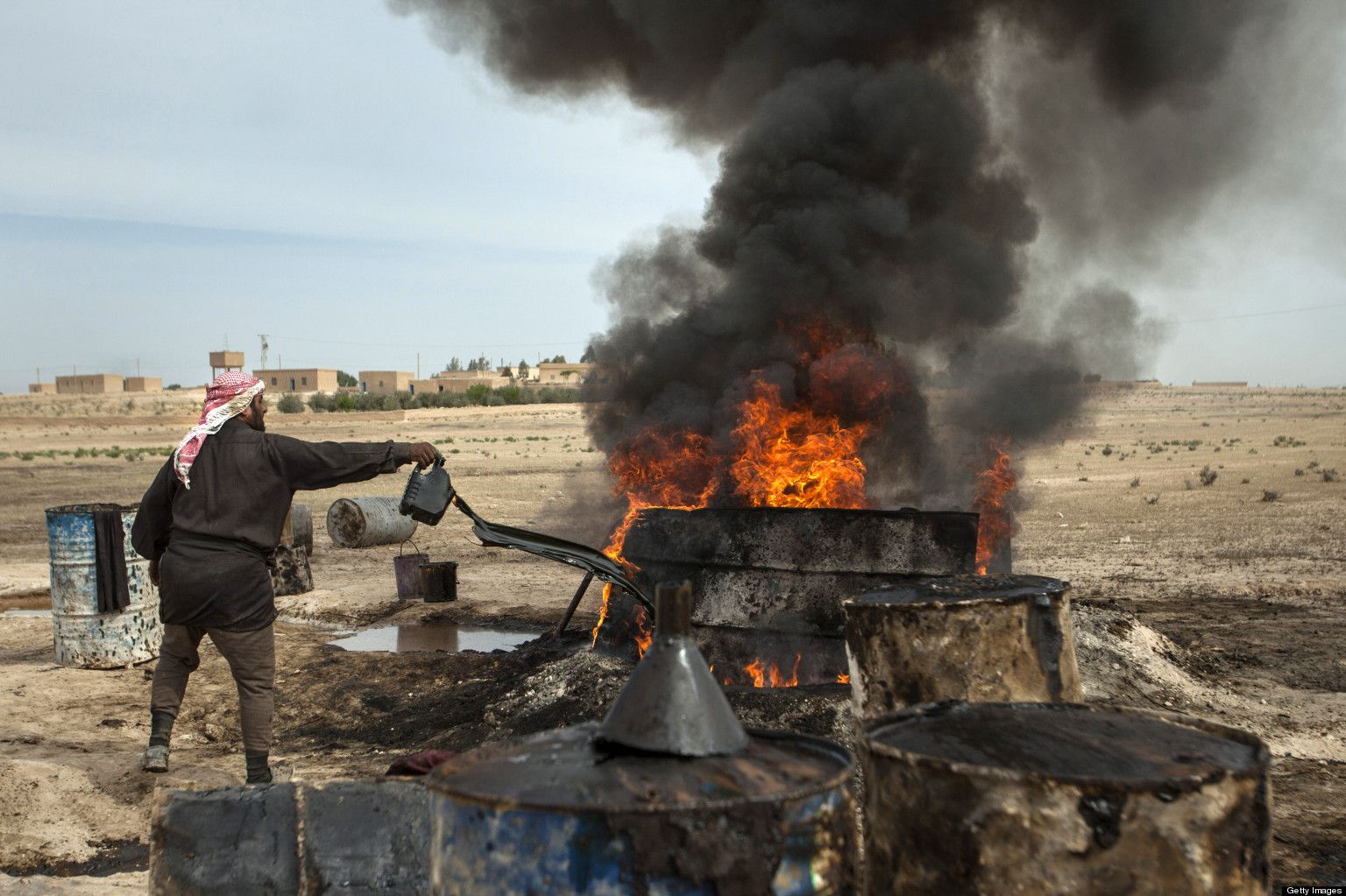
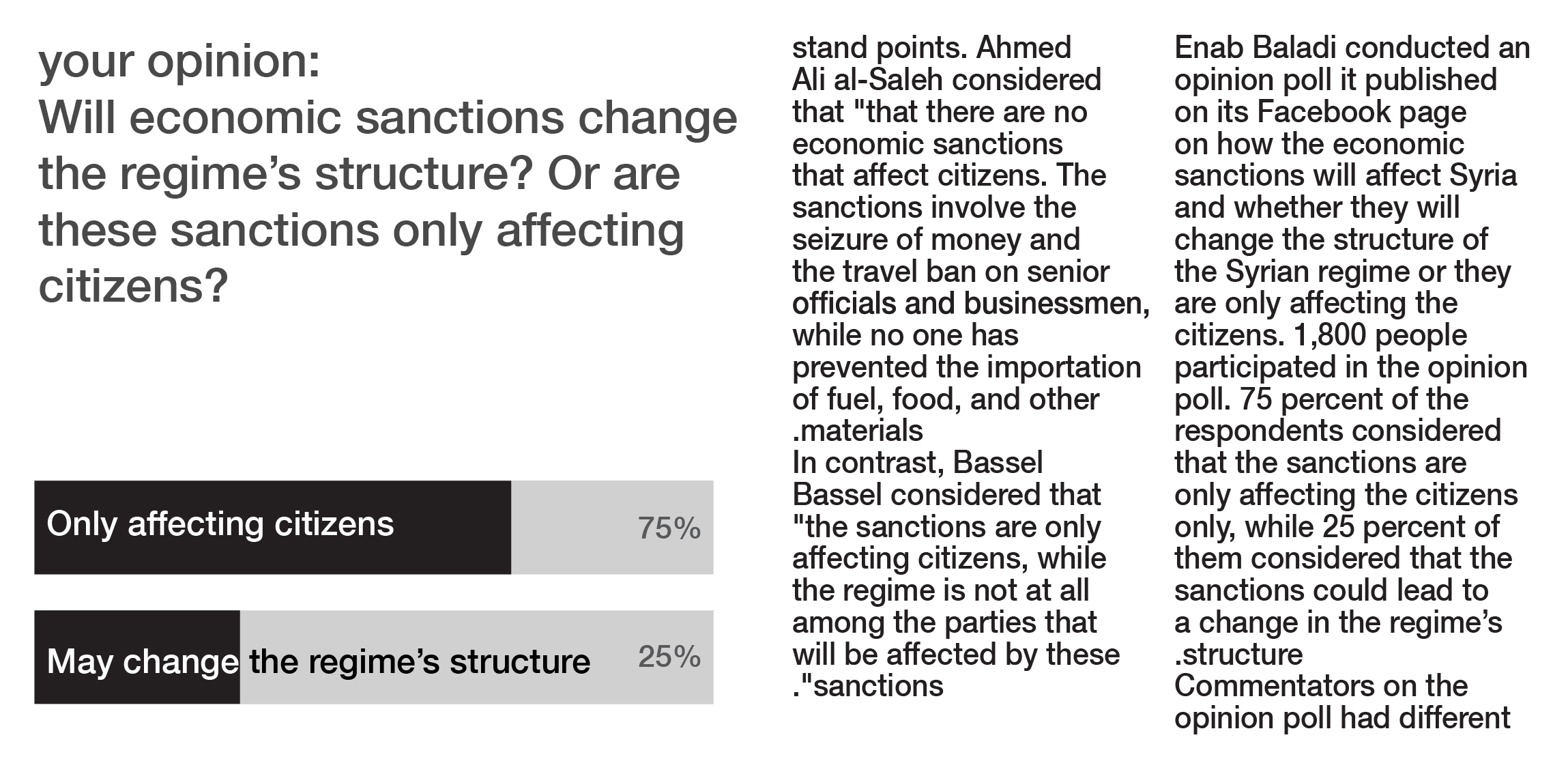
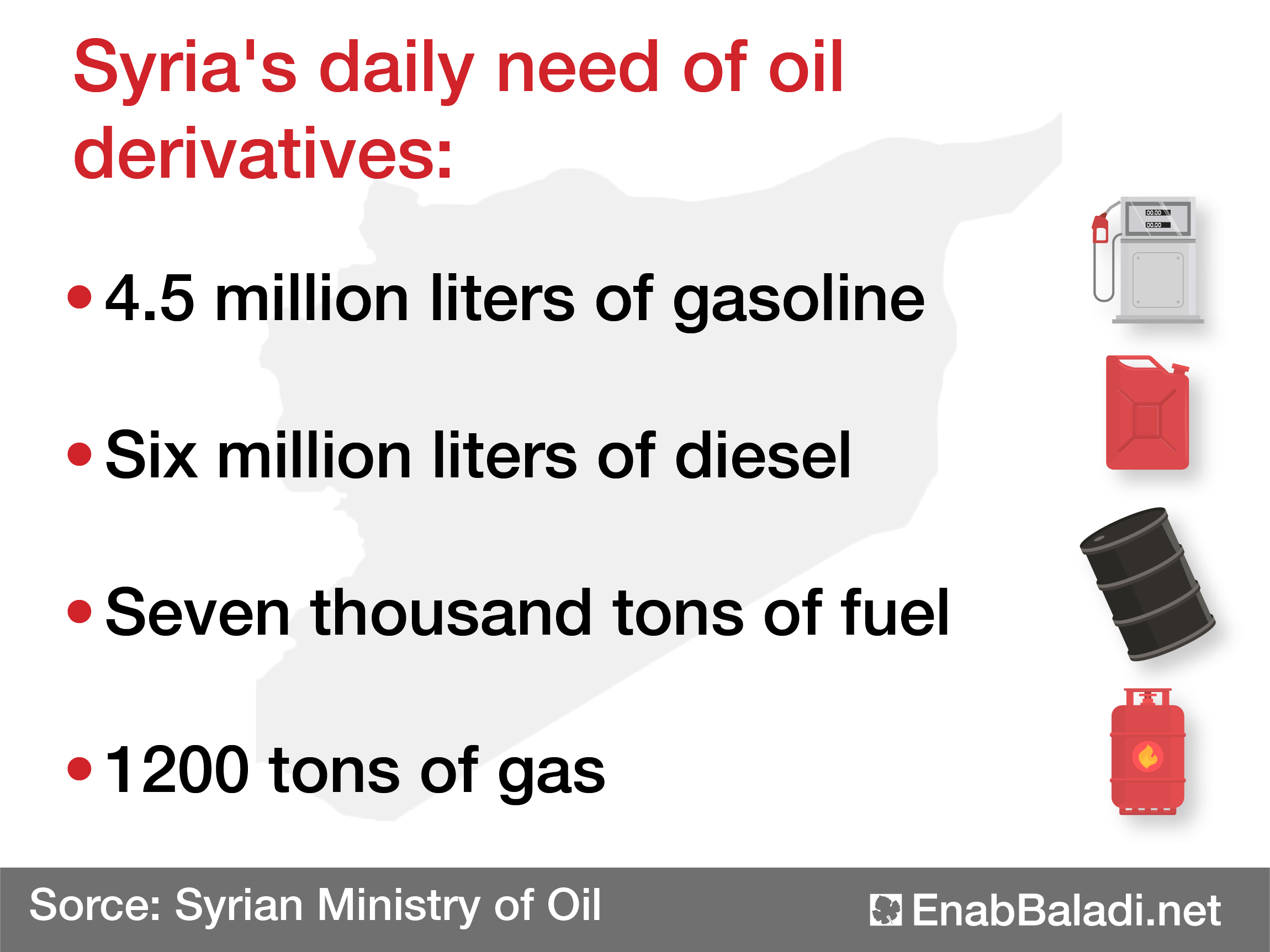
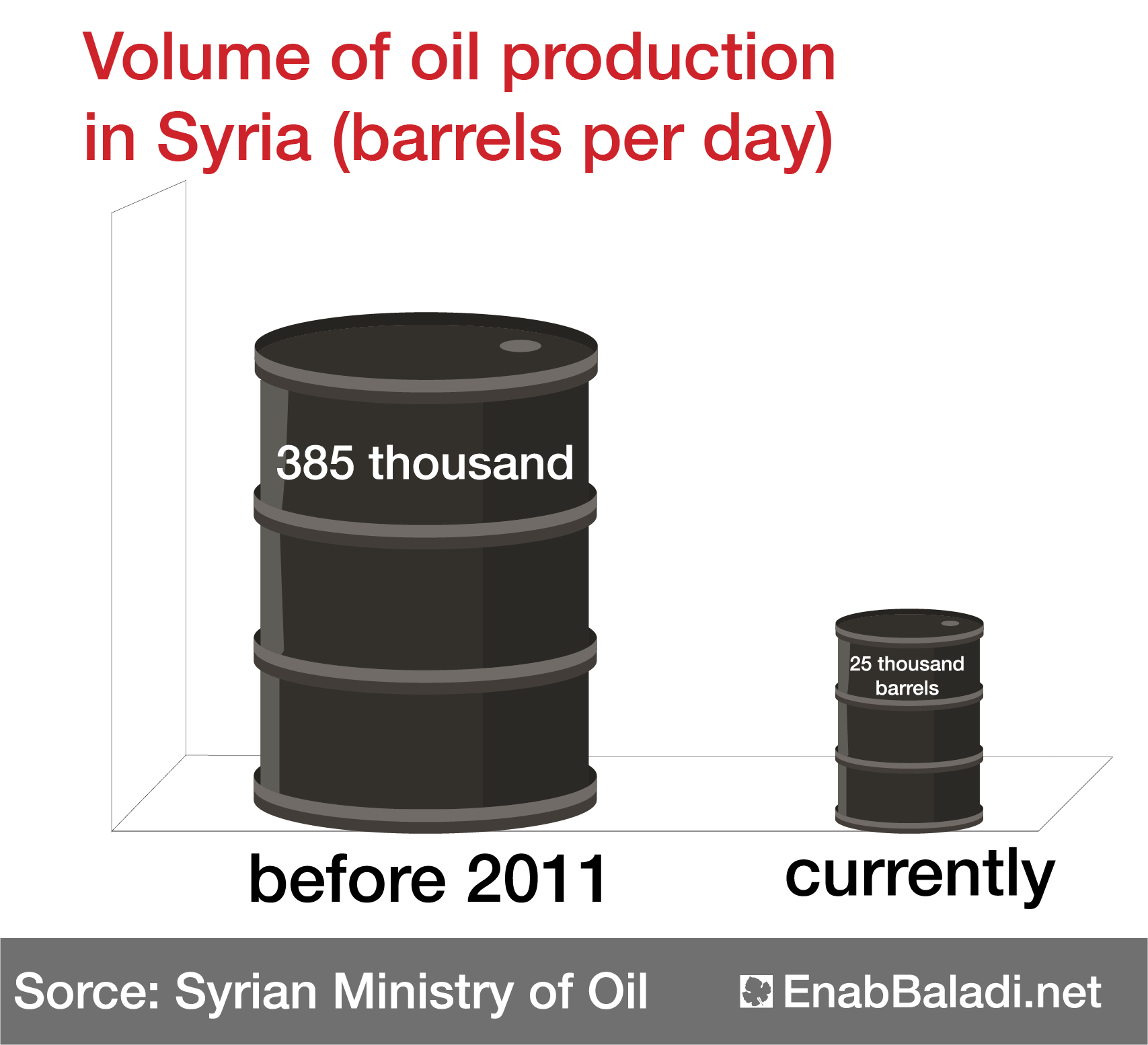







 More In-Depth
More In-Depth